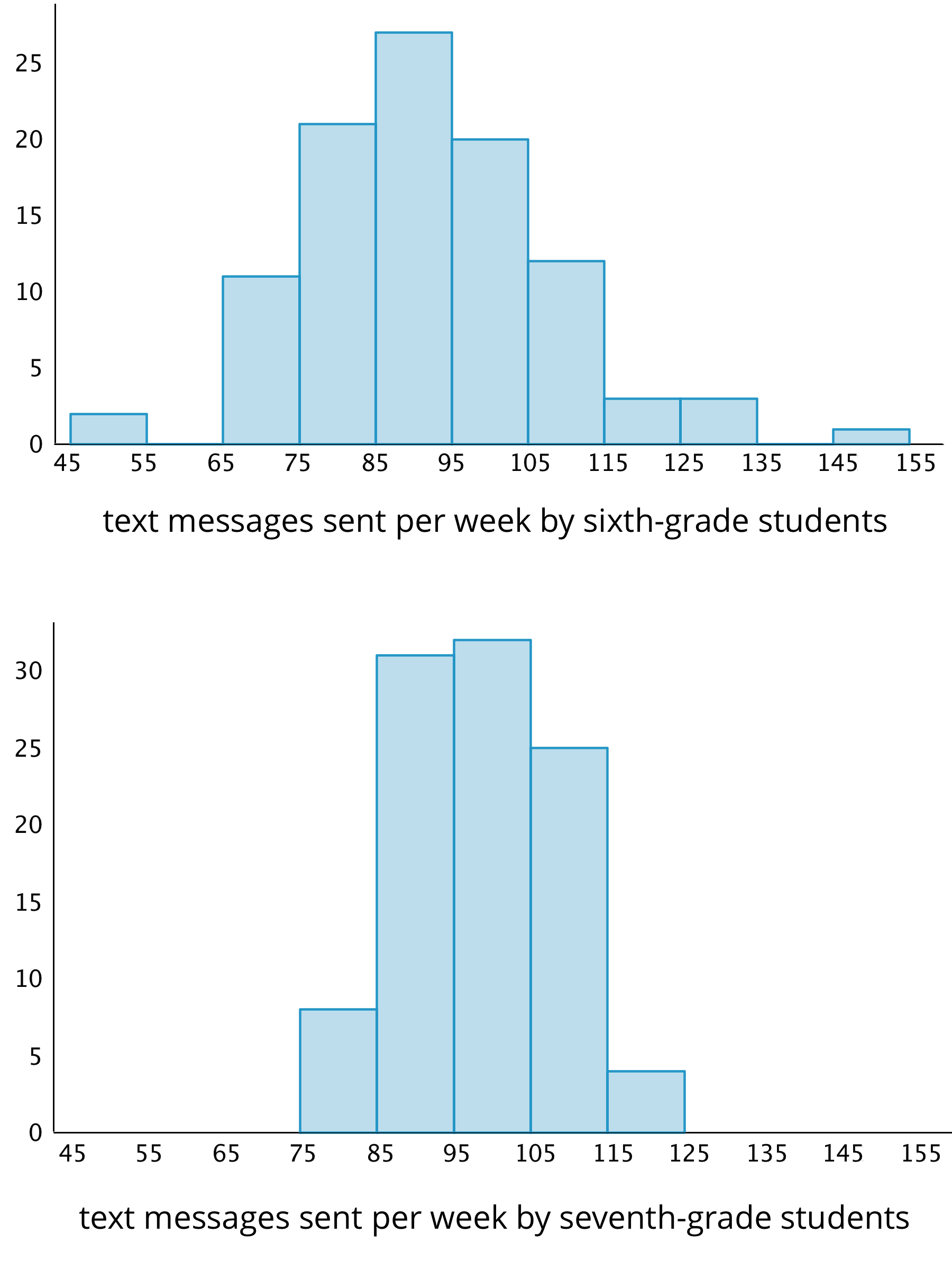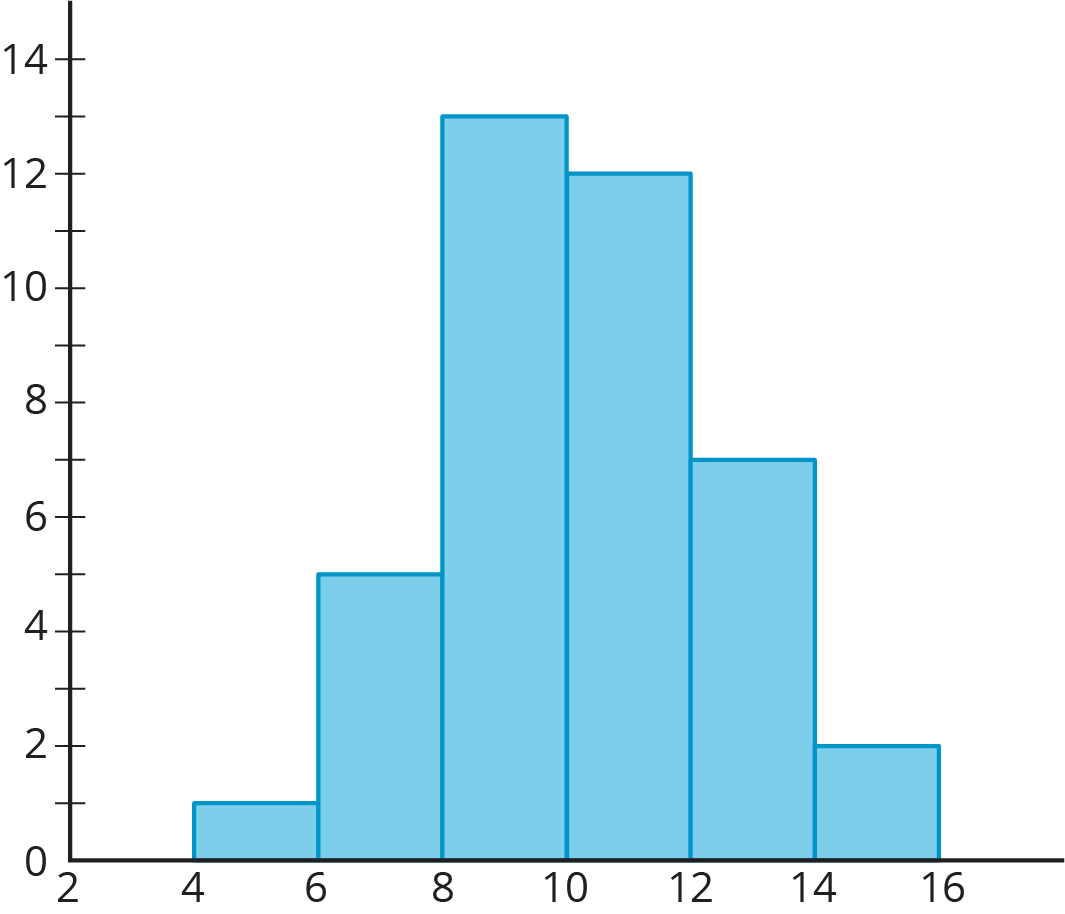Lesson 7
Using Histograms to Answer Statistical Questions
Problem 1
These two histograms show the number of text messages sent in one week by two groups of 100 students. The first histogram summarizes data from sixth-grade students. The second histogram summarizes data from seventh-grade students.

- Do the two data sets have approximately the same center? If so, explain where the center is located. If not, which one has the greater center?
- Which data set has greater spread? Explain your reasoning.
- Overall, which group of students—sixth- or seventh-grade—sent more text messages?
Solution
For access, consult one of our IM Certified Partners.
Problem 2
Forty sixth-grade students ran 1 mile. Here is a histogram that summarizes their times, in minutes. The center of the distribution is approximately 10 minutes.
On the blank axes, draw a second histogram that has:
- a distribution of times for a different group of 40 sixth-grade students.
- a center at 10 minutes.
- less variability than the distribution shown in the first histogram.


Solution
For access, consult one of our IM Certified Partners.
Problem 3
Jada has \(d\) dimes. She has more than 30 cents but less than a dollar.
- Write two inequalities that represent how many dimes Jada has.
- Can \(d\) be 10?
- How many possible solutions make both inequalities true? If possible, describe or list the solutions.
Solution
For access, consult one of our IM Certified Partners.
(From Unit 7, Lesson 9.)Problem 4
Order these numbers from greatest to least: \(\text-4\), \(\frac14\), 0, 4, \(\text{-}3\frac{1}{2}\), \(\frac74\), \(\text{-}\frac{5}{4}\)
Solution
For access, consult one of our IM Certified Partners.
(From Unit 7, Lesson 4.)